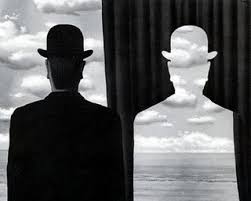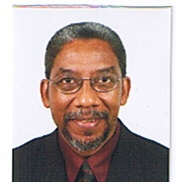 A curious article appeared in a daily newspaper 2 days ago. Headlined “They’re operating with secrecy” with a sub-head “Moonilal questions why there are 2 CoPs”. You can check the article at this link - https://www.trinidadexpress.com/news/local/they-re-operating-with-secrecy/article_959f2c36-9ab6-11e8-b131-43c4bc155528.html. It seems that this is part of a series that may be titled – The Saga of a CoP’s appointment. The questions posed in the article are even more intriguing given the person raising them. Dr. Roodal Moonilal is not just a politician. He also has a more than casual knowledge of Industrial Relations and Human Resource Management and Government. However, the content of this article suggests that, perhaps temporarily, he discarded his academic credentials. “Why are there two police commissioners in the country?”, he asks. THE ANSWER IS IN THE 2006 ‘POLICE REFORM’ LEGISLATION In fact, he spoke quite authoritatively (in the House debate on the Dulalchan nomination) giving all kinds of explanation about the intentions of the politicians when they amended the Constitution and Police Service Act in 2006. The passage of those bits of legislation is what created the Recruitment Process for CoP and DCoP which the PM described on February 2, as “unacceptable”” cumbersome” “expensive” and “I recommended that we do away with it”. Yes, the very ‘flawed’ process. Those changes not only set up that recruitment process, it also converted the position of Police Commissioner into 2-headed monstrosity in terms of public service law and practice. The same applies to Deputy Commissioner. The post of Police Commissioner is at the same time, both a Public Service Post and a Contract Position, depending on whether the person appointed is promoted through the ranks (like Williams) or is appointed from ‘outside’ (like Ewatsky and now Griffith). This is the source of Dr. Moonilal’s confusion. And, he should know since he was one of the Parliamentarians who unanimously changed the law to create this dual creature. The PM, Opposition Leader and several currently in the House were also there in 2006. Service Commissions Can Only Appoint Public Officers to Public Offices Contrary to all norms in the Public Service, the Police Service Commission which has jurisdiction to appoint, promote, discipline, dismiss, monitor the discharge of the functions of the Commissioner of Police (s.123 of the Constitution). However, unlike any other Service Commission, the Police Service Commission must follow a process determined by, then submit the name of the person selected for appointment, to Lower House of Parliament. This Commission can make an appointment ‘only after the House of Representatives approves” (s. 123(5)) Service Commissions are legally empowered to make appointments to Public Offices in a Public Service. No other organ or body of the state can appoint a Public Officer. In recent years, when the Financial Intelligence Unit (FIU) was created, Cabinet, thinking that the post of Head of the FIU was not a Public Office, proceeded to appoint Mr. David West to that position. Subsequently, the Court ruled that the Head of the FIU was indeed a Public Office and only the Public Service Commission could appoint an Officer to that position. The post was advertised, and the current holder was appointed. A similar situation occurred in the 1990’s when the current Finance Minister ‘installed’ a Transport Commissioner appointed by Cabinet into that Office. The Court also ruled that appointment illegal. However, the recruitment process created in 2006, has created a completely incongruous situation, by making it possible for the Police Service Commission to ‘appoint’ non-Public Officers to be appointed to a Contract Post of Police Commissioner. Because of this irregular (possibly illegal) situation, the Police Service Commission issued a “letter of appointment” to Gary Griffith as Commissioner of Police on Contract, the terms of which are to be settled by the National Security Ministry and Cabinet. At the same time, Mr. Williams, is Acting Commissioner in a Public Office the terms of which are determined by the Salaries Review Commission. This is what Dr. Moonilal is describing as ‘surreptitious” operation by the Police Service Commission. Today, the National Security cum Communication Minister, declared this is “all normal”, in obvious response to Moonilal’s “questions”. A sad display of political sparring. This is the confusion which Dr. Moonilal and every other Parliamentarian created when they all voted for the ‘police reform’ legislation in 2006. The Police Service Commission is Following the Law Just as the PM argued in the case of the 3rd and 4th nomination notice debates, that by going down the Order of Merit List of nominees for Commissioner, the House was ‘just following the law’, the very law they created in 2006. So, too, in issuing an ‘appointment letter’ to a Contract Position of Police Commissioner, while having an Acing Commissioner in a Public Service Office to which they had appointed him to act over 6 years, the Police Service Commissioner is ‘just following the law’. The PM changed his tune from his February 2 recommendation to ‘do away with’ the process to a ‘let’s follow the law’ position. Dr. Moonilal who was most articulate in trying to justify the same process on February 2, now claims to be perplexed at the righteous mess it has created. The politicians, who were all singular in their eagerness in 2006 to have veto control over the appointment of the CoP and DCoP, even gave themselves veto power over the President’s appointees to the Police Service Commission (s. 122(5)) since the President can appoint Commission members “only after the House of Representatives has approved…”. Now, having the power to approve who is on the Commission, how the Commission is to conduct recruitment and with power to approve both CoP and DCoP and having created a completely unheard of dual Public Office – Contract Position in those positions, the politicians, seek to blame the Police Service Commission for the total ball of confusion that they created themselves in 2006. Having compromised the Commission and its independence and decision-making, the politicians now seek to excoriate it and its members and hold themselves blameless. This is what happens when the Political Directorate seeks to usurp all power to itself and exercise a Power-to-Deny rather than a Power-to-Share decision-making. Clyde A Weatherhead A Citizen Fighting For Democratic Renewal of Our Society 09 August 2018 What's What
Yesterday it was wet and slushy like the mud in the Savannah after the showers on Emancipation Day. Today, it was a scorcher. No where was comfortable, not even in your vehicle with the AC on. We are in the wet season. But, days like this make us wonder if that is the case, Things have become like that in recent years. We can't be sure what's what with the seasons even though we only have two – wet and dry. If we were to deny our own experience – the floods in the ‘dry’ season and the really hot days in the ‘wet – we would not question why things are not as-we-were-told-they-are-supposed-to-be. The old definitions, even of our climate, are not adding up to our experience. We have a choice – we can examine what is going on and what is causing the change. Or, we can take comfort in the definition-as-we-know-it and pretend that things are just the same. We can ignore climate change and accept the word of those who say that it's a hoax or ‘fake news’, completely negating our own experience and refusing to engage in an act-of-finding-out. So it is with other things we are experiencing in the economy politics, crime and social conditions; in life. Things are not the same. Instead of making our own analysis of Why these changes are taking place, we are encouraged to accept the explanations of those who we have been told are experts in such matters. We are driven to the ‘comfort’ of accepting statements, analysis or concepts without questioning the fundamentals involved in them. By doing so, we begin to accept the basis for the development of fascism. Racism is a basic aspect of the fascist ideology. Recently, a prominent ‘expert’ suggested that the big problem that requires urgent attention in the police service is that there are too many Africans and not enough Indians in there. First of all this statement regurgitates an old myth about not enough of this or that race in the public service or this or that profession. It totally ignores the history of the society and the service itself and how the composition of the membership of the service developed. It also ignores the fact that 326 citizens of this country have been murdered by the time this statement was made and the police service was not solving more than 10% of all murders for reasons that have nothing to do with the demographics of the officers. Such statements are intended only to inflame hatred and division. Donald Trump used his election campaign to blame immigrants for crime, drugs and murder, even for unemployment in the US. Since his election all kinds of racist attacks and hate crimes have escalated in that country. It also led to the state separating nearly 3,000 children from their parents until this outrage was halted by condemnation. Herman Goering, a senior Nazi General, during the Nuremberg Trials, remarked “Voice or no voice, the people can always be brought to the bidding of their leaders; that is easy. All you have to do is tell them that they are being attacked and denounce the pacifists for lack of patriotism and exposing the country to danger. It works the same in any country.”. Belief in the accumulated or promoted prejudices of society, with no questioning or validity, becomes the dogma that gives rise to overt fascism. It was heartening to hear the voices of the people in opposition to the dogma preached by this self-appointed ‘voice of those South of the Caroni River”. Regardless of whether it comes from the politicians or anyone else, the people must never accept ready-made explanations or statements or policies or concepts without questioning the basis and motive. This way, the unity of the people and their rights and interests will always be defended against un-thinking acceptance of detrimental and destructive propaganda. Clyde Weatherhead A Citizen Fighting for Democratic Renewal Of Our Society 4 August 2018  Emancipation Day – Reflections Alaafia. E ku aaro (Handle the morning). It’s Emancipation Day! 180 years since the end of chattel slavery in this land. Time for Celebration; Kamboulay! Freedom! Emancipation is, for me, a time of Reflection. Somehow, even more so this year. Perhaps it’s just the sentimentality that comes with the passage of the years. Or, it is the times and the troubles in the world demanding attention. Last evening, I spent some time looking once more at the last 3 hours of Henry Louis Gates, Jr’s series - AFRICA'S GREAT CIVILIZATIONS. In these 3 hours one is taken on a journey from the Swahili Coast to the West Coast and across Africa and over 4 centuries in an examination of history and the evolution of Africa and its encounter with other continents. It is a journey from the beginnings of the Portuguese slave trade for its sugar plantations on Sao Tome and Principe and later across the Atlantic to Brazil. The Portuguese occupied those islands in 1493, just about the same time that Spain ‘discovered’ the West Indies. The trans-Atlantic slave trade deprived Africa of 12.5 million of its most precious resource – its young men and women - as the European powers demanded labour for the plantations. Forward to 1884-5 and the infamous Berlin Conference, where 13 colonial powers of Europe and the United States (having freed itself of British rule 108 years earlier and abolished slavery just 18 years before) decided how they would carve up Africa. The discovery of gold in the South, the huge mineral wealth, palm oil for lubricating the machines of their industries and rubber for tyres drove the imperial powers to chop up Africa for colonization and annexation without wars among themselves (at least until 1914). Only Ethiopia (which drove the Italians out) and Liberia remained independent of the colonizers’ control at the start of World War I (a new redivision of the world among the imperialists). This journey in history was a powerful reminder of how chattel slavery and the plunder of Africa resourced the industrial and military might of the colonizing powers of Europe and the US. The current contention for global hegemony among the present-day imperial superpowers and the danger of new re-divisions of the globe, including by war is also put in perspective by this recounting of the experience of Africa and the imperial powers just over 100 years ago. Reflection became a lesson for the present on this Emancipation eve. If we fail to learn from history, we will surely repeat its disasters, it is said. Emancipation, the end of chattel slavery, provides the opportunity for all people to examine that history which must not be allowed to be repeated. It calls on all who love and cherish freedom, to examine the causes of chattel slavery, of the carving up of Africa by oppressing powers and to learn how to prevent it from ever happening again. Emancipation is a time to look again at Ethiopia, not with romanticism, but clinically to understand how the people of that part of Africa and the globe were able to repel and resist the yoke of colonial conquest. On this Emancipation Day, let us reflect and prepare for the coming storms to safeguard and strengthen the freedom we celebrate. Let us all Handle/Control our day and determine our future. Emancipation is not just a day. It is our future. Clyde Weatherhead August 1, 2018 |
AuthorI am a appalled at the loss of the simple skills of discussing ideas and sharing Opinions to DEEPEN ANALYSIS and UNDERSTAND DEVELOPMENTS to ARRIVE AT SOLUTIONS. Archives
April 2024
Categories |

About Clyde Weatherhead
Clyde has been involved in public life as a political activist, a trade unionist, Lawyer, Teacher and Author |
Connect With Clyde
Write to Clyde on Facebook Visit Clyde's Author Page on Amazon Go To Discussion on Facebook For Employment Relations Issues |

 RSS Feed
RSS Feed